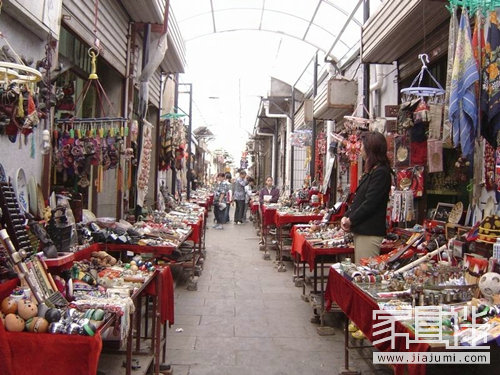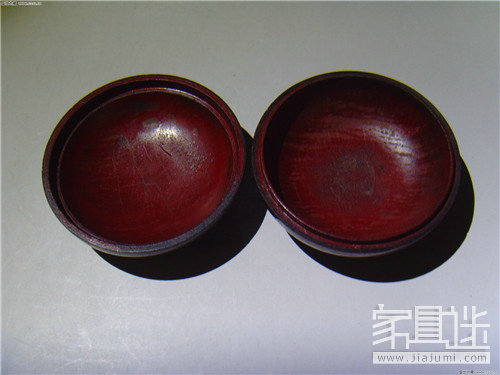There is a jargon in the pawnshop, there is a jargon in the circle, there is a jargon in the stock market, there is a jargon in the comic dialogue, and there is a jargon in the Beijing opera. It can be said that each circle has its own specific jargon. Jargon, as the name suggests, is a specific language within a certain line. Only those who are familiar with the line can understand it. The jargon seems to be a bit of a river, and can be understood in the line. In the antiques, senior old friends and old players have come up with one or two lingo jargon, so that the new Tibetans who are involved are unknown. Xiaobian now organizes some of the jargon of the antique furniture industry as follows.

Licensed: Generally refers to “big road goodsâ€, also refers to the non-exquisite artworks that artists or artisans produce in batches to cope with the market.
Take points: refers to the antique goods purchased by antique merchants, can get higher profits. Also refers to "fast goods."
Loss: refers to a loss. This reflects the great gambling of the management of antique dealers. Buying an antique, you can't sell it when you get it, or you have to lose money, it's called "losing." The antiques merchants are afraid of losing, but they are also afraid of losing their eyes.
Stinky: As the name suggests, it means rotten, something that everyone hates. However, there is a process of stinking, it refers to something that was originally "fragrance", but it is put out, or it can not be sold for a long time, but many antique dealers have been taken out and become known, who I also don’t want to buy the goods (because from the psychology of buying, everything that has been bought by many people and no one is considered to be faulty or problematic, so hesitant, do not want to buy), just at this time the seller can’t hold it. The lower the selling price, the more no one buys it. This is what the antique trader stole. Therefore, antique dealers like to reach out to the antiques of "I have never seen the sky" when doing business.
Live: An antique merchant took a product from another antique businessman and didn't pay at the time. This is called "live." The rule of "living" is that the price is good, you can only sell more, you can't sell less, at least the bottom. There must be faith in words. The price is higher than the buyout. Generally speaking, the person who pays the living is no longer required to pay the handling fee or the runway fee. However, the person who takes the living can increase the price at the time of "live", called "wearing a hat" and selling more. The person who returned to live, the original owner did not ask.
Matter: The antiques merchants put 10% (10%) on the people who help themselves to sell goods as a reward, called "raise a little", and the other regulations do not count. Usually speaking, it is 10%. Guides and translations may be separately specified. Antiques businessmen can't be foolish about this practice. Otherwise, there will be no enthusiasm for those who help you sell goods.
Evenly: Buying things in antiques is not called buying. "Can you give me this word?" means "Can you sell this word to me?"
Let: Antiques sell things not to sell, let. "This piece of porcelain will be given to you." Or "Do you want to give it to me?"
Take the trade term, the investor decided to buy the collection. "I took this collection."
Insiders: Peers who are engaged in antiques business.
Related reading: graphic analysis of old furniture jargon terminology
Runway children: middlemen who buy or sell antiques, some are relatives and friends who are familiar with the sale, some are specialized brokers, do not invest in non-partnerships, only run away from them, and say a deal.
Copying the road: The business was originally introduced by some people, but the buyer and the seller both left the middleman and traded directly with the other party (so that they did not mention the agency fee afterwards) and also prevented the “wearing capâ€. This is an act of loss of professional ethics.
Eyes: Refers to the judgment is wrong, bought a fake. The operation of the antique trader relies entirely on eyesight, and the eyesight is hit, only bad things.
Missing children: When an antique businessman buys antiques, the seller does not understand, the good things are not valued, and the market is not clear, so the antiques merchants are cheap. The person who buys the goods is called "the leaky child", and the person who sells the goods says it is sold out.
Road: the taste of antique objects. It does not mean people, but refers to things. If the bottle is compared with the plate, the ancient bottle is of course higher than the plate and the road. A bit like the "goods" in the appearance.
Leather shell: refers to the ancient history of the old-fashioned river, but the appearance of historical traces. Bamboo, wood, lacquer, carving, bronze works, it seems to be covered with a layer of oil skin, this oil skin is called "leather shell." The husk is the product of historical accumulation.
Selling: It means that the antiques are not true or the status is not high, but it is relatively complete, old or exquisite. When it is sold, it seems to be "loving people". It is popular with buyers and is called "selling." On the contrary, although the antiques are true, but they are dirty or look not refined, they are not welcomed by the buyers, that is, they are not sold.
Palm-eye: When buying antiques, please have a smart person to master the scale for yourself, so as not to have any mistakes in the authenticity. For those who take control of their own eyesight, they are called "Please bring a certain gentleman to the palm of your eye."
Evil price: surprisingly high price.

Stretch: When an antique businessman really wants to buy or sell, because one party has to consider it, deliberately do not buy or sell, and prepare to put on a long line to realize their own trading plan, called: stretched and bought and sold.
On the package: trading terms, the investor decided to buy the collection, ask the seller to wrap the collection and roll it up.
Roll up: meaning is equivalent to the package, mainly used in transactions such as calligraphy and painting, rubbings, etc.
Leave it: Delivery, the collector decides to buy a collection and let the delivery person leave the goods.
The question is: the collector decides to buy a certain collection, and the operator decides to operate a certain collection.
Useless: The collector decides not to buy a certain collection, and the operator decides not to operate a certain collection.
Back: The collector decided not to buy a certain collection, and the operator decided not to operate a certain collection.
Fang: Simplify the word "万" plus a little "square", which means RMB 10,000 yuan.
Hang: One thousand pieces of ancient money is a hang, now it means thousand yuan.
One: "Zhang" is not the quantity of money, but the quantity unit of the banknote carrier. This term is wonderful because it can float with the appreciation and depreciation of the currency. In the 1980s, one fingered ten yuan; in the 1990s, it was said to be one hundred yuan.
Licensed: Generally refers to “big road goodsâ€, also refers to the non-exquisite artworks that artists or artisans produce in batches to cope with the market.
Miko: The name of the US dollar.
Emergency Room/ Nursing Trolley Series
Nursing Trolley,Detachable Instrument Trolley,Medical Treatment Trolley Cart,Wear-Resistant Instrument Trolley
NANJING TIANAO MEDICAL INSTRUMENTS MANUFACTURE CO.,LTD. , https://www.tianaomedical.com